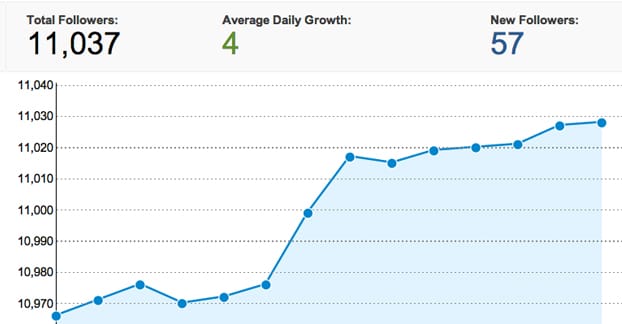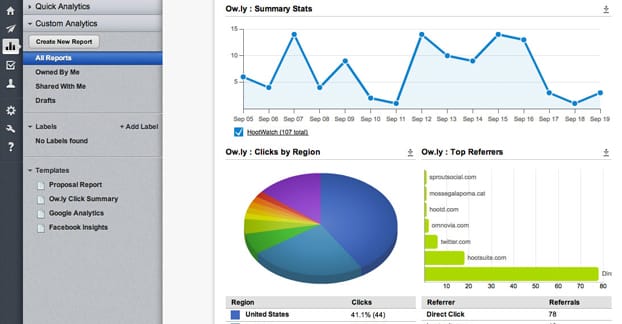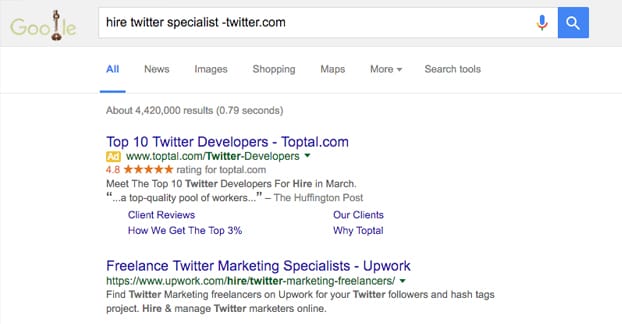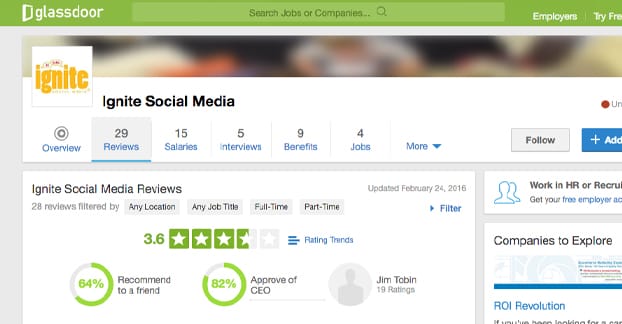Running a dedicated social media presence is hard. It’s a ton of work, it takes a lot of time, and it takes a particular set of customer service and interaction skills. Chances are, as a business owner, you don’t have or want to develop that set of skills. You have bigger fish to fry, making deals, making sales, hiring new employees, and generally guiding the path your business will take.
Some businesses leave social media to their marketing department, but what if you don’t have a marketing department? What if your “marketing department” is Bob and Janet down the hall? They have enough on their plates managing your Google ads, your print ads, and your budgets. Social media, again, takes up a ton of time. They would have to hire someone else, and you just can’t swing that in your budget.
This is, at the core, the main reason people want to outsource their social media marketing. It’s a lot of time and effort to learn and manage; why not spend money in place of time and get someone else to do it, someone who has the skills already? You get all the benefits of a marketing employee, but you have them on a contract; you don’t have to worry about fuzzy employment laws, setting up tech for them, or managing benefits.
Social media outsourcing is generally going to be a contract, either with an individual contractor or with a company that specializes in social media management. It can be as narrow as a partial run of Twitter alone, or as broad as a complete social media presence taken out of your hands.
The Benefits of Outsourcing
You can get a lot of mileage out of outsourcing your social media presence.
It has a ton of possible benefits, and only a handful of drawbacks.
- Outsourcing can leave technical aspects, like picking a username, setting up a profile, and creating high quality imagery to people who have the skills and experience necessary to do it.
- Outsourcing allows you to ensure that your cross-network integration and marketing are firmly tied together, through appropriate use of cross-site promotion and supplements like Twitter Cards.
- Outsourcing allows you to reduce the amount of time you spend on something that isn’t your focus, and to reduce the amount of money you would have to spend hiring someone to do it in-house.
- Outsourcing gives you access to the skills and experience of experts in the field. They know all about trends in social marketing, and they’ll avoid the common pitfalls you might slip into as a novice.
- Outsourcing with a high quality management company can give you a smooth transition from their staff to your own for customer service requests and assistance, with your customers none the wiser.
- Outsourcing tends to cost less than hiring the equivalent skill level in the equivalent employees, not to mention the fact that the best such employees prefer to work on a contract basis with a variety of different clients at once.
- Outsourcing means you’re starting with someone who knows what they’re doing, rather than having to train someone up from scratch, particularly when you might not have access to quality training materials, or even know where to go to look for them.
On the other hand, you have to watch out for a few possible issues. For one thing, social marketing is all about being social. It seems obvious, but a lot of brands – and a lot of low quality social marketers – do nothing but schedule an “ideal” number of posts for each day and ignore the site. They don’t respond to comments, they don’t assist with customer service, and they don’t dig into the deeper functions of the networks involved. This is wasting a lot of potential.
At the same time, you have to make sure the voice of the manager is consistent with the voice of your brand. If your chosen social manager is likely to bad-mouth the competition in order to make your brand look better in comparison – or if they’re likely to berate customers with simple questions – they can give your company a bad name. At a lesser level, you can also encounter times when the voice just isn’t compatible; you want to be a lot more casual – or a lot less casual – than the social manager prefers.
You have a few choices to make before you start outsourcing. Where does your personal management end and the manager’s begin? How much do you outsource? What company or contractor do you want to hire?
Deciding the Basics
The first thing you need to decide is how much involvement you want to have with your social media accounts. If they’re running a Twitter account with your name on it as CEO, you probably want to have at least some idea of what they’re doing; a little oversight and a little ability to contribute is probably a good thing. If they’re running a pure branded Twitter, on the other hand, you can probably completely divorce yourself from the process.
Some companies will handle everything for you. They offer the total package, managing every aspect of your social media presence. You never have to think about or look at it, except for the once every few months oversight and the monthly reports they send you to tell you how you’re growing. Ideally, you just pay for it and you end up with growth to your business and website. All you have to do, then, is make sure you’re bringing in more in new profits than you’re spending on the marketers.
On the other side of the coin are the supplemental contractors. These are the people who work closely with you or your team. They handle your social ads, but they do it with your marketing team for guidance. They handle your day to day posting, but they leave the customer service and the personal engagement to you and your team. They know how often to post, but they don’t dominate your time. They work with you to find the voice you want for your company.
This second type of marketer tends to be a heck of a lot cheaper than the full-ride managers, but they’re also a lot more time-intensive. Rather than just reading reports once or twice a month, you’re signing up for constant interaction. You’re pulling someone new into your team; the trick is that they’re a contractor rather than an employee, is all.
Now, there’s not just two fine categories, all or nothing. Every marketer or marketing company is going to work in a different way. You’ll have to make a list of the potential contractors and investigate them to figure out if they’re doing what you want them to do. That’s going to be the first step; look around for social media marketers or specific Twitter marketers who are willing to work with your company.
Some companies will only work with brands that have a significant following or budget, while others will happily start up a brand new presence for you. Some will only work with large companies, others will work specifically with small businesses and not large. Some specialize in local work – you might have a local company you can contract that provides an excellent service others won’t find – while some are global companies with thousands of account managers on staff.
I recommend making a list of possible companies you can contract and starting to investigate them. Contact them and see what they can do for you.
- What social networks do they manage, and what networks do they avoid? If your brand requires Pinterest marketing on top of your Twitter marketing, you don’t want a company that won’t touch Pinterest.
- What are their tiers of service, and what are the prices? You need to make sure they aren’t going to break the bank; you have a budget, after all, and if they can’t provide at least enough results to pay for themselves within a year, they’re probably too expensive for you.
- What are their credentials? Check the feeds of some other brands they manage, and ask them how much control they had over those feeds. Ask for specific statistics in growth. Ask for contact information for the company and contact their references, to get firsthand testimonials.
- What tools do they use to manage a social presence? You want to make sure they’re using legitimate, up to date tools. If they’re using something thrown together by a friend of the owner, they’re probably missing out on valuable opportunities. If they don’t use any management tools at all, they’re inefficient at best.
- What are their opinions on coming trends in the industry? For Twitter as an example, how are they prepared to deal with the new filtered feed? Social media timing is no longer enough all on its own.
- Do they understand the laws in your state and country that govern social media communications? The FCC has some disclosure laws, and there are occasionally local tax laws that might have an impact on how they market.
- What would they do if an angry customer started posting on your feed, demanding to be addressed? You absolutely need some channel through which the marketer can refer someone back to your customer service. It’s okay if this is just a direct referral to a CS account managed by an in-house staff member, but it’s also okay if they can handle customer service directly. Just make sure they have the power to make deals or offer refunds to make customers happy.
Any other concerns you may have, feel free to write down and ask of each of the companies you want to interview. This list is by no means comprehensive.
You’re probably going to start out with a list of 100+ social media managers. There are tons of them out there, and if you’re not sure how much management you want or what your budget is, it can be hard to narrow down the field. Be ruthless with your questions and cull your list at a whim. Even if a company just doesn’t feel right, you don’t want to subject yourself to the constant anxiety, so you might as well scrub them from the list. It’s not like there’s a shortage of people out there ready and willing to manage a social account.
You should also work to look into reviews of the companies or contractors you’re hiring. Some of them might put in the time to manage their reputation online, but most don’t have that kind of time or care as much, so they’ll let their reputation grow as time goes on. This means you’ll be able to find some unbiased reviews and can get an idea of the quality of the company. Keep an eye out for anything obviously BS; you don’t want to fall for a basic paid review.
You should take special care to make sure the company doesn’t have a presence on or a history with black hat techniques. You don’t want to log in one day and find that your Twitter account has a 90% fake rating for social followers. You don’t want to find them using bot automation or spam techniques to try to artificially grow your brand, because that’s the kind of thing that will backfire. You’re not getting your money’s worth out of them, you’re getting them using a $100 automation program and raking in your cash.
Be very careful with the kinds of companies you hire. It’s easy to hire a company using techniques that are bannable. I’ve seen people turn over a Twitter account and watch it grow by leaps and bounds, only to be suspended and have to start from scratch with a company that doesn’t cut and run. I’ve seen brands get hit by 80% or more when Twitter does a purge of fake accounts. These are the sorts of issues you want to avoid.
Social media marketing doesn’t have to be expensive. You don’t have to resign yourself to paying thousands of dollars a week on a manager. You just have to take the time to make sure the contract you’re signing is going to be beneficial to your company, rather than just to the marketer.









Thanks for this excellent article! I am just starting to outsource my account’s marketing.